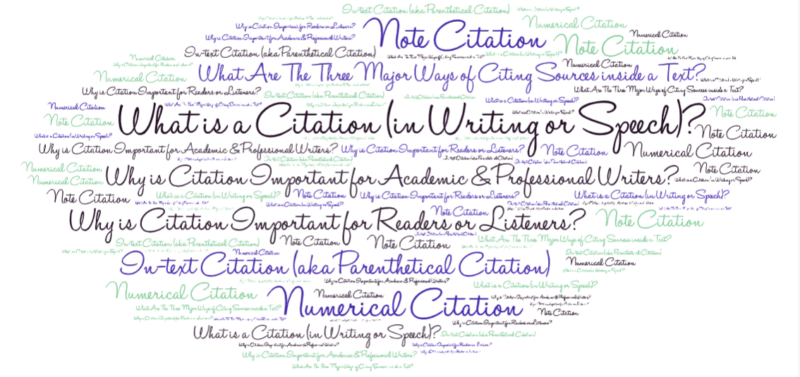Related Concepts: Ableist Language – Disability Metaphors – Disability Studies; Commonplaces (Topoi); Communicating; Genre; Interpretation; Learning; Listening; Mindset; Openness; Perspective; Rhetorical Analysis; Rhetorical Reasoning
Dear Professor,
Two roads diverge, and a neurodivergent student walks the road less traveled.
Students in middle and high schools across the nation are encouraged to take a path less traveled. Unfortunately, they are usually lauded for expressing ideas that follow a well-worn path, forged by many similar minds. Meanwhile, those who chose a unique path struggle to feel heard. They lose value in classroom settings because they drift away from conventional answers.
When I was in the eighth grade, a teacher whom I had never met read a dismal poem out loud about a drought. She asked the class, “What was the man afraid of?” Most of the class agreed that the man was scared of the drought. I had the opportunity to walk the road less traveled. I raised my hand to disagree: the consequences of the drought were more startling than the cause. He was afraid of burning thirst, hunger without end, of mortality and desolation and the terror of something with no projected end. I did not know at the time, but I was living the same reality as the man. I was not terrified of speaking in class. Instead, I was afraid of being rebuked by an academic authority and the belittlement that was certain to follow.
The teacher rejected my ideas immediately. Though it was interpretative; though it was poetry, and the author was long gone; my answer was simply incorrect. The road I took was blocked off with traffic cones, crime scene tape, and flashing lights. My ideas were not welcome there. As students climb towards and through higher education, select groups find themselves on the wrong side of the learning curve.
Students, especially neurodivergent ones, get lost and stuck like this too often. A friend failed an essay because of a misunderstood prompt; a classmate was chided by the teacher for asking too many clarifying questions; a student was graded down because they raised their hand too often in class.
For me, being a writing student in high school meant frantically guessing. Asking my sister what she wrote about, asking the teacher for examples from years past, writing down every word an instructor said so I could memorize pages of notes and parrot them back. Other students did not seem to be struggling. I thought there was something wrong with me. I felt like I was a bad writer and a bad student. Why am I always confused? It should not have been like that.
As a student, I needed more patience, permission to ask questions, and permission to find those answers without fearing being wrong or public scrutiny.
Encountering neurodivergence, or neurodiversity, is common. Most people have met someone or are close to someone who falls on the spectrum of neurodivergence. Nick Walker (2014, section 4), a doctoral writer and educator, explains neurodivergence as someone whose “mind … functions in ways which diverge significantly from the dominant societal standards of ‘normal.’”
Someone can be born neurodivergent or it can be a result of trauma or long-term use of mind-altering substances. Diagnoses make up a spectrum, including conditions like epilepsy, autism, ADHD, OCD, synesthesia, dyslexia, and PTSD (Walker, 2014). K-12 teachers receive little neurodiversity training. Those who specialize their studies tend to focus on programs specifically for neurodiverse students who need extra assistance. Because of this, teaching styles often lean more toward the deficit model than they do towards appreciating the differences in students.
I personally did not meet someone who was willing to truly work with me and understand the way my brain operates until I went to college. A phenomenal professor broke me out of the anxiety and excessive vulnerability that came from expressing myself in academic settings. In my first college semester, we were given an assignment with only one rule: incorporate the quote we discussed in class. Talk about nostalgia any way you choose. I rephrased the prompt in a way that made sense to me: I described the things in my life that inspired nostalgia, and then described why they held gravity in my life. After drafting, peer reviewing, and listening to recorded feedback from my professor, I felt good. I felt freedom, from waking up in terror and checking my grades, or walking into a classroom and knowing that a professor thought less of me because of a paper I wrote. I was ready to hand in an assignment without fearing failure.
What’s more, the class was given the opportunity to revise multiple times. Any adjustments made after that were resubmitted, and if we made the corrections, we were given an A. This worked for several reasons. First, there were no hidden expectations. Nothing I did was going to be automatically wrong. I was given free creative range to form my own art. Additionally, if I made something unclear or worded something incorrectly, I had support from other readers who were not grading me down for the revision process. Lastly, I was not fearing rejection; no one was going to tell me I was unteachable or someone who is undeserving of an explanation. Instead, peers wanted me to explain my point of view. They wanted to listen to the music of my words and understand the world that I had developed.
It is imperative that teachers not only learn about their students’ unique qualities, but look for and encourage them. Invite challenges, open the floor to unfamiliar ways of thinking, and ask questions. Normalize the quest to find answers. Welcome slight discomfort and challenges to the concepts that clash against the majority. Most students want the chance to elaborate on their methodology, instead of immediately being rejected. Without well-rounded professors to provide positive classroom experiences, student works remain shrouded in shame and fear. Writing should not be a secret passion, furtively scribbled in a notebook and hidden under a bed. It should be celebrated as a window into the perspective of someone far outside oneself.
Though the road may be less traveled, it should not be less valued. Celebrate neurodivergent students and raise their voices. They are worth listening to.






















